
Recent findings from the James Webb Space Telescope reveal that oxygen was abundant in the early Universe, suggesting that life’s essential elements were present much earlier than previously thought.
New findings from the James Webb Space Telescope reveal a surprising abundance of oxygen in the early Universe. Researchers discovered that oxygen levels in galaxies surged within 500-700 million years following the Universe’s birth, reaching levels comparable to those in contemporary galaxies. This suggests that the essential elements for life were present much earlier than previously believed.
In the early Universe, shortly after the Big Bang, only light elements such as hydrogen, helium, and lithium existed. Heavier elements like oxygen were subsequently formed through nuclear fusion reactions within stars and dispersed into galaxies, primarily through events like supernova explosions. This ongoing process of element synthesis, unfolding over the vast expanse of cosmic history, created the diverse elements that constitute the world and living organisms around us.
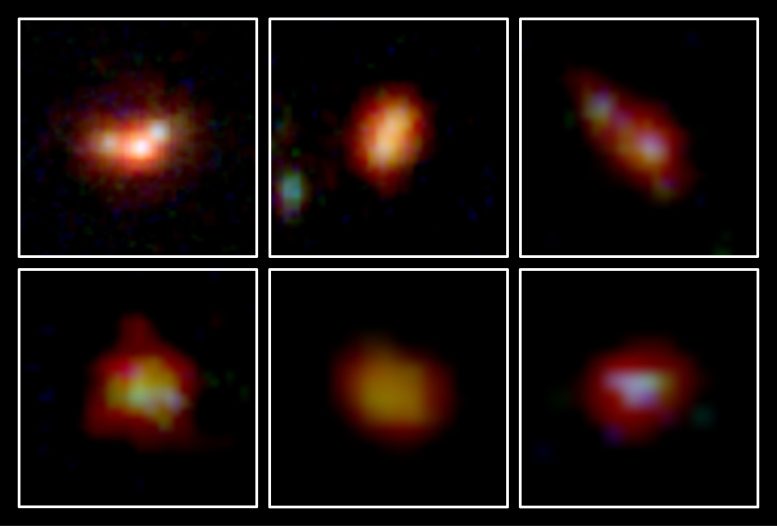
JWST infrared images of 6 galaxies from 500-700 million years after the birth of the Universe. All 6 have low oxygen abundances compared to modern galaxies. Credit: NASA, ESA, CSA, K. Nakajima et al.
Recent Findings Using the JWST
A research team led by Kimihiko Nakajima at the National Astronomical Observatory of Japan used data from the James Webb Space Telescope (JWST) to measure the oxygen in 138 galaxies that existed in the first 2 billion years of the Universe. The team found that most of the galaxies had oxygen abundances similar to modern galaxies. But out of the 7 earliest galaxies in the sample, those that existed when the Universe was only 500-700 million years old, 6 of them had roughly half the predicted oxygen content.
This rapid increase in oxygen content occurred earlier than astronomers were expecting. This opens the possibility that with the necessary ingredients, like oxygen, already readily available in the early Universe, life may have appeared sooner than previously thought.
Reference: “JWST Census for the Mass–Metallicity Star Formation Relations at z = 4–10 with Self-consistent Flux Calibration and Proper Metallicity Calibrators” by Kimihiko Nakajima, Masami Ouchi, Yuki Isobe, Yuichi Harikane, Yechi Zhang, Yoshiaki Ono, Hiroya Umeda and Masamune Oguri, 13 November 2023, The Astrophysical Journal Supplement Series.
DOI: 10.3847/1538-4365/acd556
The study was funded by the Japan Society for the Promotion of Science.

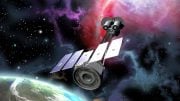

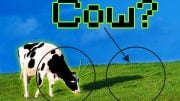
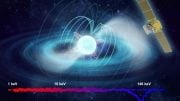
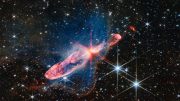


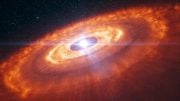
Life is the human perspective or concept only, so this isn’t life actually. In that case, the existence of early universe oxygen makes no difference. Think human minus nature for a moment to get the real idea of the system of nature.
It was said FEAR ACT NOW YOU BETTER UNDERTAND WHEN OBAMA SAID ITS ALL ON EVERYONE WHO ATTEMPT IT WILL FACE FEAR ACT NOW
For those whom say they don’t believe in science? It’s like saying that you don’t believe in yourself. We are science.
No, we are not science. Science is the explanation of how things work. Are are not science. But science does explain us.
Good
There’s a paragraph that doesn’t make sense in the context of the article. It says 6 of 7 early galaxies showed half of the expected oxygen. How does that line up with saying oxygen was available earlier than expected?
“But out of the 7 earliest galaxies in the sample, those that existed when the Universe was only 500-700 million years old, 6 of them had roughly half the predicted oxygen content.”
Reread it. It makes total sense.
Lorna Meatte–Exactly!!
We are science; no, Sience is Science. It provides KNOWLEDGE of WHO and WHAT and HOW we and all around us IS ,ARE, AND WILL OR MIGHT BE.
MY QUESTION IS….
Why are we all different…unique even…..is there a point in DIFFERENCE ?
Less and less reasons to believe that the universe is a mere 15 billion years old and that it started with some kind of a large exolosion.
But scientific dogmas seem to cling on just as firmly as the religious ones. Who knew?
This article tells us nothing that would lead a logical person to your conclusion.
And?
I have a scientific background and yet I believe that
“…. .The same was in the beginning with God” John, Chapter 1 verse 2
Adding more eons of time does not further the argument of trying to say that our 8 million or so living creatures, plants etc just happened. The idea that somehow a need to evolve produced evolution is circular reasoning at best. Finding the basis for further out in the universe evidence of oxygen is simple more extrapolation of existing extrapolation based on assumptions from a speculative and extremely finite point of view. Science is the observation and exploration of data through testing and principles that can be proven eventually. Good science needs to be based on first principles that are established as fact then are a basis for further development that needs to be consistent and non contradictory. This is the law of non contradiction. The universe is a time space continuum, as of course Einstein deduced. So we are on here in a tiny spot on that time space continuum making assumptions based on ideas that do not have a proven first cause, about truth that is outside of our ability to evaluate scientifically. A first principle that makes more sense is that a Creator, best described by the Bible, who is outside of this time space continuum created these obviously designed things, including our own selves, and which we can observe and scientifically grapple with, within the capability that we have.
If the Creator is best described by the Bible, and if he’s so omnipowerful – why did he need a break after six days?
We all lizards